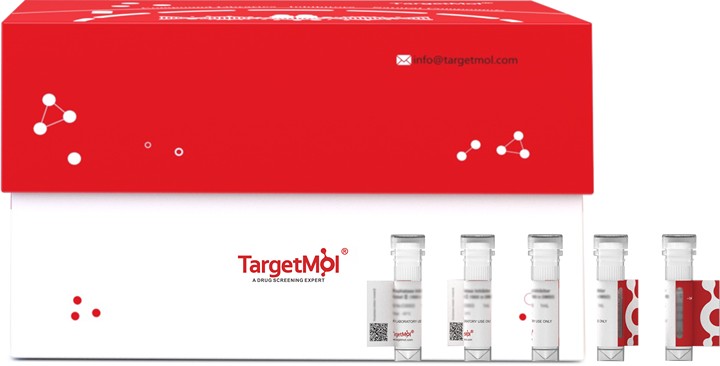- Remove All
 Your shopping cart is currently empty
Your shopping cart is currently empty
Shopping Cart
GCKR Protein, Human, Recombinant (His)
Catalog No. TMPH-01387
Regulates glucokinase (GCK) by forming an inactive complex with this enzyme. Acts by promoting GCK recruitment to the nucleus, possibly to provide a reserve of GCK that can be quickly released in the cytoplasm after a meal. The affinity of GCKR for GCK is modulated by fructose metabolites: GCKR with bound fructose 6-phosphate has increased affinity for GCK, while GCKR with bound fructose 1-phosphate has strongly decreased affinity for GCK and does not inhibit GCK activity. GCKR Protein, Human, Recombinant (His) is expressed in yeast with N-6xHis tag. The predicted molecular weight is 70.7 kDa and the accession number is Q14397.

GCKR Protein, Human, Recombinant (His)
Catalog No. TMPH-01387
Regulates glucokinase (GCK) by forming an inactive complex with this enzyme. Acts by promoting GCK recruitment to the nucleus, possibly to provide a reserve of GCK that can be quickly released in the cytoplasm after a meal. The affinity of GCKR for GCK is modulated by fructose metabolites: GCKR with bound fructose 6-phosphate has increased affinity for GCK, while GCKR with bound fructose 1-phosphate has strongly decreased affinity for GCK and does not inhibit GCK activity. GCKR Protein, Human, Recombinant (His) is expressed in yeast with N-6xHis tag. The predicted molecular weight is 70.7 kDa and the accession number is Q14397.
| Pack Size | Price | Availability | Quantity |
|---|---|---|---|
| 20 μg | $231 | 20 days | |
| 100 μg | $480 | 20 days | |
| 1 mg | $1,980 | 20 days |
Bulk & Custom
Add to Cart
Resource Download
Product Information
| Biological Activity | Activity has not been tested. It is theoretically active, but we cannot guarantee it. If you require protein activity, we recommend choosing the eukaryotic expression version first. |
| Description | Regulates glucokinase (GCK) by forming an inactive complex with this enzyme. Acts by promoting GCK recruitment to the nucleus, possibly to provide a reserve of GCK that can be quickly released in the cytoplasm after a meal. The affinity of GCKR for GCK is modulated by fructose metabolites: GCKR with bound fructose 6-phosphate has increased affinity for GCK, while GCKR with bound fructose 1-phosphate has strongly decreased affinity for GCK and does not inhibit GCK activity. GCKR Protein, Human, Recombinant (His) is expressed in yeast with N-6xHis tag. The predicted molecular weight is 70.7 kDa and the accession number is Q14397. |
| Species | Human |
| Expression System | P. pastoris (Yeast) |
| Tag | N-6xHis |
| Accession Number | Q14397 |
| Amino Acid | MPGTKRFQHVIETPEPGKWELSGYEAAVPITEKSNPLTQDLDKADAENIVRLLGQCDAEIFQEEGQALSTYQRLYSESILTTMVQVAGKVQEVLKEPDGGLVVLSGGGTSGRMAFLMSVSFNQLMKGLGQKPLYTYLIAGGDRSVVASREGTEDSALHGIEELKKVAAGKKRVIVIGISVGLSAPFVAGQMDCCMNNTAVFLPVLVGFNPVSMARNDPIEDWSSTFRQVAERMQKMQEKQKAFVLNPAIGPEGLSGSSRMKGGSATKILLETLLLAAHKTVDQGIAASQRCLLEILRTFERAHQVTYSQSPKIATLMKSVSTSLEKKGHVYLVGWQTLGIIAIMDGVECIHTFGADFRDVRGFLIGDHSDMFNQKAELTNQGPQFTFSQEDFLTSILPSLTEIDTVVFIFTLDDNLTEVQTIVEQVKEKTNHIQALAHSTVGQTLPIPLKKLFPSIISITWPLLFFEYEGNFIQKFQRELSTKWVLNTVSTGAHVLLGKILQNHMLDLRISNSKLFWRALAMLQRFSGQSKARCIESLLRAIHFPQPLSDDIRAAPISCHVQVAHEKEQVIPIALLSLLFRCSITEAQAHLAAAPSVCEAVRSALAGPGQKRTADPLEILEPDVQ |
| Construction | 1-625 aa |
| Protein Purity | > 90% as determined by SDS-PAGE. |
| Molecular Weight | 70.7 kDa (predicted) |
| Endotoxin | < 1.0 EU/μg of the protein as determined by the LAL method. |
| Formulation | Tris-based buffer, 50% glycerol |
| Reconstitution | A Certificate of Analysis (CoA) containing reconstitution instructions is included with the products. Please refer to the CoA for detailed information. |
| Stability & Storage | Lyophilized powders can be stably stored for over 12 months, while liquid products can be stored for 6-12 months at -80°C. For reconstituted protein solutions, the solution can be stored at -20°C to -80°C for at least 3 months. Please avoid multiple freeze-thaw cycles and store products in aliquots. |
| Shipping | In general, Lyophilized powders are shipping with blue ice. Solutions are shipping with dry ice. |
| Research Background | Regulates glucokinase (GCK) by forming an inactive complex with this enzyme. Acts by promoting GCK recruitment to the nucleus, possibly to provide a reserve of GCK that can be quickly released in the cytoplasm after a meal. The affinity of GCKR for GCK is modulated by fructose metabolites: GCKR with bound fructose 6-phosphate has increased affinity for GCK, while GCKR with bound fructose 1-phosphate has strongly decreased affinity for GCK and does not inhibit GCK activity. |
Dose Conversion
You can also refer to dose conversion for different animals. More
Calculator
Tech Support
Please read the User Guide of Recombinant Proteins for more specific information.

Copyright © 2015-2025 TargetMol Chemicals Inc. All Rights Reserved.


